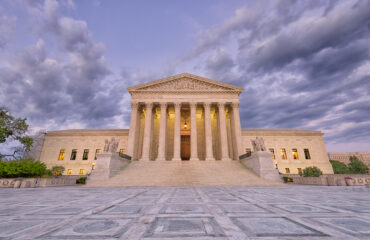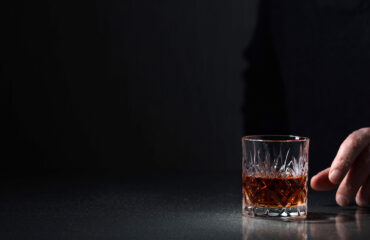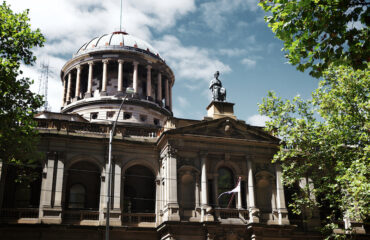Frye v. United States[1] set the orgininal federal standard for the admission of scientific evidence in the courtroom. That standard lasted for several decades before the Supreme Court In Daubert v. Merrell Dow Pharmaceuticals, Inc., 509 U.S. 579 (1993) held the Frye standard was superseded by Federal Rule of Evidence 702 (FRE 702).[2] As part of it’s opinion, the court expanded the judicial gatekeeping role when considering scientific evidence. This holding appeared to go beyond what was explicitly contemplated in the original 1975 language of FRE 702.[3] Thus, the opinion created several non-exclusive factors for judges to consider when engaging in their new gatekeeper duties.[4]
The Court in General Electric Co. v. Joiner, 522 U.S. 136 (1997) further expanded the judicial gatekeeping role, requiring that a trial judge must consider both the expert’s conclusion, and the that methodology was also reliable.[5] Subsequently, the Court extended the logic of Daubert to technical and other specialized knowledge in Kumho Tire Co. v. Carmichael, 526 U.S. 137 (1999).[6] The scope of these decisions have been characterized as the Daubert Trilogy.[7]

FRE 702 Amended
In 2000, FRE 702 was amended to incorporate the Daubert Trilogy. The immediate effect of the change apparently caused judges in civil cases to apply a stricter standard for the admission of expert evidence. There did not seem to seem to be the same impact in criminal cases. As one major law review article noted: “[P]rosecutors are likely to win expert witness admissibility challenges far more frequently than criminal defendants, and more often than civil parties on either side.”[8] The lack of an effect led another reviewer to conclude that a “sheer paucity” of state criminal appellate court decisions meant that the Daubert Trilogy was “irrelevant” in criminal cases.[9]
Changes Coming?
Once again, FRE 702 is undergoing an amendment process. The changes appear to have two principal purposes. They are:
- First, to confirm and emphasis that the admissibility of scientific testimony must be analyzed under the preponderance of evidence standard in both civil and criminal cases.[10]
- Second, to strengthened the role of the judge as the gatekeeper of forensic evidence.[11]
As the Advisory Committee note specifically states: “The amendment is especially pertinent to the testimony of forensic experts in both criminal and civil cases…”[12]
Differing Comments for FRE 702
In response to these changes, the Judicial Conference Committee on Rules of Practice received numerous comments, with most focusing on the impact of the rule change on civil cases, and only a few comments about the impact on criminal cases.[13] However, those few comments make it very clear that these changes are understood to be, at least in part, an effort to require judges to apply the standards of the Daubert Trilogy in criminal cases.
Lawyers for Civil Justice filed a comment expressing this understanding, stating that the change to FRE720(d) are: “[M]ore pertinent to criminal cases than civil matters, it is nonetheless an appropriate reminder that the court’s gatekeeping responsibility has not ended when the initial admissibility ruling is made.”[14]
The National District Attorneys Association (NDAA) expressed its strong opposition to the rule change pointing out that there is currently an “expansive body of case law interpreting” the court rule providing sufficient guidance for judges to appropriately fulfil their role as the gatekeeper. The NDAA argued that the rule change is a “solution in search of a problem.” [15]
The National Association of Criminal Defense Lawyers (NACDL) strongly supported the rule change stating: “NACDL thus enthusiastically supports the Committee’s proposed clarification…[T]he need to exclude unreliable or dubious evidence is particularly acute in the criminal context…”[16]
Finally, a group of agencies and individuals joined a comment by the American Civil Liberties Union, and the Innocence Project: “We offer this letter in support of the proposed amendments to Rule 702…. The two proposals offered here must be viewed in light of the fact that forensic evidence has played an outsized role in convicting the innocent…”[17]
Applying FRE 702 Evenly
Judges, in their role as gatekeepers of scientific evidence, have a duty to follow FRE 702 in both civil and criminal cases. The proposed changes, if adopted, may help judges do just that. If so, then the Daubert Trilogy may finally become relevant in criminal cases.
For more information about the admission of scientific evidence you can download the free Science Bench Book for Judges created by the Justice Speakers Institute, LLC, and published by the National Judicial College.
[1] Frye v. United States, 293 F. 1013 (D.C. Cir. 1923)
[2] P. Hora , B MacKenzie, D. Wallace, The Science Benchbook for Judges https://justicespeakersinstitute.com/wp-content/uploads/2021/01/Science-Bench-Book-2nd-Ed.pdf
[3] P. Hora , B MacKenzie, D. Wallace, The Science Benchbook for Judges https://justicespeakersinstitute.com/wp-content/uploads/2021/01/Science-Bench-Book-2nd-Ed.pdf
[4] https://justicespeakersinstitute.com/wp-content/uploads/2021/01/Science-Bench-Book-2nd-Ed.pdf
[5] https://justicespeakersinstitute.com/wp-content/uploads/2021/01/Science-Bench-Book-2nd-Ed.pdf
[6] https://justicespeakersinstitute.com/wp-content/uploads/2021/01/Science-Bench-Book-2nd-Ed.pdf
[7] https://justicespeakersinstitute.com/wp-content/uploads/2021/01/Science-Bench-Book-2nd-Ed.pdf
[8] J. Hilbert, The Disappointing History of Science in the Courtroom: Frye, Daubert, and the Ongoing Crisis of “Junk Science” in Criminal Trials, 71 Okl. L. Rev. 759, 797 & notes 212-51 (2019) (collecting studies).
[9] B. MacKenzie, The Daubert Double Standard. https://justicespeakersinstitute.com/the-daubert-double-standard/
[10] https://www.regulations.gov/document/USC-RULES-EV-2021-0005-0001
[11] Id.
[12] Id.
[13] https://www.regulations.gov/document/USC-RULES-EV-2021-0005-0001/comment?filter=International%20Association%20of%20Defense%20Counsel%20
[14] https://www.regulations.gov/document/USC-RULES-EV-2021-0005-0001/comment?filter=Lawyers%20for%20Civil%20Justice%20 .
[15] https://www.regulations.gov/comment/USC-RULES-EV-2021-0005-0105 .
[16] https://www.regulations.gov/comment/USC-RULES-EV-2021-0005-0462 .
[17] Id. The following agencies, committees, associations and individuals joined in this comment: Academy for Justice at the Arizona State University Sandra Day O’Connor College of Law, , Due Process Institute, Federal Public and Community Defenders, Forensic Justice Project, Julia Leighton, General Counsel, Public Defender Service for the District of Columbia (retired), Prof. Brandon L. Garrett, Director, Wilson Center for Science and Justice at Duke University, Public Defender Service for the District of Columbia, Quattrone Center for the Fair Administration of Justice at the University of Pennsylvania, Carey Law School School of Law, Southern Center for Human Rights, The Bronx Defenders, and The Legal Aid Society.
Get more articles like this
in your inbox
Subscribe to our mailing list and get the latest information and updates to your email inbox.
Thank you for subscribing.
Something went wrong.








